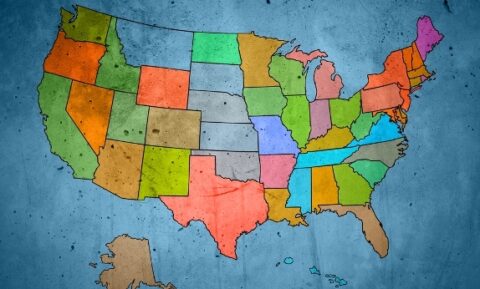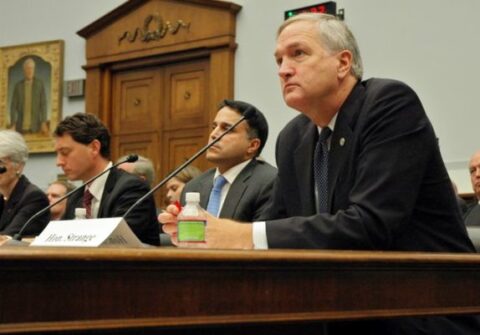Economics

New Legislation to Boost Tourism Would Bring Jobs, Revenue to U.S. Economy
When it comes to the global tourism market, the U.S. is missing out in a big way. So much so, in fact, that the Obama administration has issued two executive orders to address the drop in international tourism revenue. Over the last ten years, America’s share of the travel market fell from 17% in 2000 to 12% in 2010—a drop that translates into 467,000 lost jobs, $606 billion in lost spending by visitors, and $37 billion in lost tax revenue. Experts blame the dip on unnecessary visa processing delays and restrictions. But a new bipartisan tourism bill introduced this week seeks to remedy the U.S. tourism slump by reforming some visa processes, making it easier foreign nationals to visit and spend money in the U.S. Read More

Is Mississippi About to Make a Costly Mistake on Immigration?
Either Mississippi lawmakers aren’t aware of the hefty fiscal and legal burdens brought on by harsh immigration legislation in other states, or they just don’t care. This week, the Mississippi House passed HB 488, an immigration enforcement bill that allows local law enforcement to determine the immigration status of individuals during an arrest whom they “reasonably suspect” is in the country without documents. The bill, which passed out of the House by a vote of 70-47 this week, also makes it illegal for undocumented immigrants to enter into business transactions with the state, including the issuance of business and drivers licenses. The bill now goes to Mississippi’s Republican-controlled Senate. Read More

Report by Maryland State Panel Details Positive Approach to Immigration
A new report from the Commission to Study the Impact of Immigrants in Maryland concludes that immigrants bring a plethora of economic, social, and cultural contributions to the state of Maryland. The commission, which was created by the Maryland General Assembly, also warns against attempts to deal with unauthorized immigration through enforcement-only policies that needlessly sow fear and distrust in immigrant communities. Rather, the commission admonishes, “Maryland must remain welcoming to immigrants, and the state and its local jurisdictions should further strengthen its efforts to integrate immigrants into the economy and the community.” Read More

Alabama’s Extreme Immigration Law Could Cost State Billions, Report Finds
Implementing Alabama’s extreme immigration law (HB 56) would be incredibly expensive. That is the bottom line of a new report by University of Alabama economist Samuel Addy entitled A Cost-Benefit Analysis of the New Alabama Immigration Law. According to the report, the law could cost Alabama up to $11 billion in GDP and nearly $265 million in state income and sales tax. The loss includes 1) implementation, enforcement, and litigation expenditures; 2) increased costs and inconveniences for citizens and legal residents and businesses; 3) reduced economic development opportunities because it creates a poor business climate; and 4) the economic impact of reduced aggregate demand due to some unauthorized immigrants leaving and therefore not earning and spending income in the state. Read More

Immigrants, Latinos and Asians Contribute More to Your State Than You Think
Immigration has never been a numbers game. When people think of immigration in America, they likely call to mind fear-fueled myths perpetuated by immigration restrictionists, like “immigrants are stealing American jobs” or “immigrants are a drain on our system.” Sadly, numbers and facts have rarely been part of the discussion, especially as state legislatures continue to take immigration law into their own hands. Today, however, the Immigration Policy Center published 50 state fact sheets updated to show just how much immigrants, Latinos and Asians contribute to our country as consumers, taxpayers, workers, entrepreneurs and voters—facts state legislators would do well to consider before passing legislation that drives immigrants, undocumented and documented, from their state. Read More

Alabama’s Immigration Law Digs Deeper Hole for State Economy
Although some Alabama lawmakers credit the state’s overall drop in unemployment to their new immigration law (HB 56), the reality is that many industries and sectors in the state are losing workers and jobs. This week, the Birmingham News reported that Alabama’s construction industry is losing jobs faster than nearly any other state—a loss experts say is due in part to HB 56’s draconian provisions. To make matters worse, Alabama’s crackdown on those who look or sound foreign (a Honda employee stopped this week and the arrest of a Mercedes executive last week) is causing many to fear Alabama’s anti-immigrant reputation will detract foreign investors from doing business in the state. In fact, according to the Tuscaloosa News, “the law is becoming the greatest threat to the state’s economy and job creation, overshadowing even the record-setting bankruptcy of Jefferson County.” Read More

Some Alabama Businesses Having Trouble Replacing Immigrant Workers
Just two weeks after Alabama’s extreme immigration law (HB 56) went into effect, many are reporting an exodus of immigrants, Latinos and their families from the state. While HB 56 supporters cheer the exodus as a victory, many Alabama businesses say they are left without an adequate workforce. Despite assurances from Governor Bentley that U.S. citizens will gladly take those jobs, Alabama farmers, meat processors and housing contractors are finding that U.S. citizen or legal workers are either not willing or able to take those jobs—leaving fruit to rot on the vine and home reconstructions projects unfinished. Not only will this hurt Alabama business in the short term, economists say, but will shrink the state’s economy and productivity over time. Read More

The Facts (and Numbers) Don’t Matter in Alabama
Alabama Attorney General, Luther Strange, testifying before Congress. Photo by lutherstrange. As each day passes under Alabama’s new, highly restrictive immigration law (HB56), it is becoming increasingly clear that facts (and numbers) had very little to do with the passage of the law—and that they continue to be ignored as state officials defend the law. In fact, this willful disregard of facts and data may mean Alabama is about to pay a very high price for a small problem. Read More

Governor Jerry Brown Signs Immigration Bills that Help, Not Hurt, California’s Economy
Take note, Alabama. Over the weekend, Governor Jerry Brown signed two immigration bills that seek to boost California’s struggling economy, rather than saddle it and small businesses with costly enforcement programs. Governor Brown signed the “Employment Acceleration Act of 2011” (AB 1236), a bill that prohibits the state from requiring employers to use E-Verify, as well as the other half of California’s DREAM Act (AB 131), a bill which makes college more affordable for undocumented students and “benefits us all,” as Gov. Brown says, “by giving top students a chance to improve their lives and the lives of all of us.” Read More

Can Alabama Afford to Enforce their New Restrictive Immigration Law?
This week, U.S. District Judge Sharon Blackburn failed to enjoin major provisions of Alabama’s extreme immigration law, HB 56, a law designed to drive unauthorized immigrants from the state. Under the law, police officers are now required to demand proof of legal status from anyone who seems foreign. School administrators are required to ask children about their immigration status and that of their parents. People and businesses—including utilities companies—are encouraged not to enter into contracts with anyone who cannot prove their legal status. While some anti-immigrant groups are celebrating the judge’s decision, Alabama businesses and state agencies may ultimately bear the economic brunt of this damaging law. Read More
Make a contribution
Make a direct impact on the lives of immigrants.
